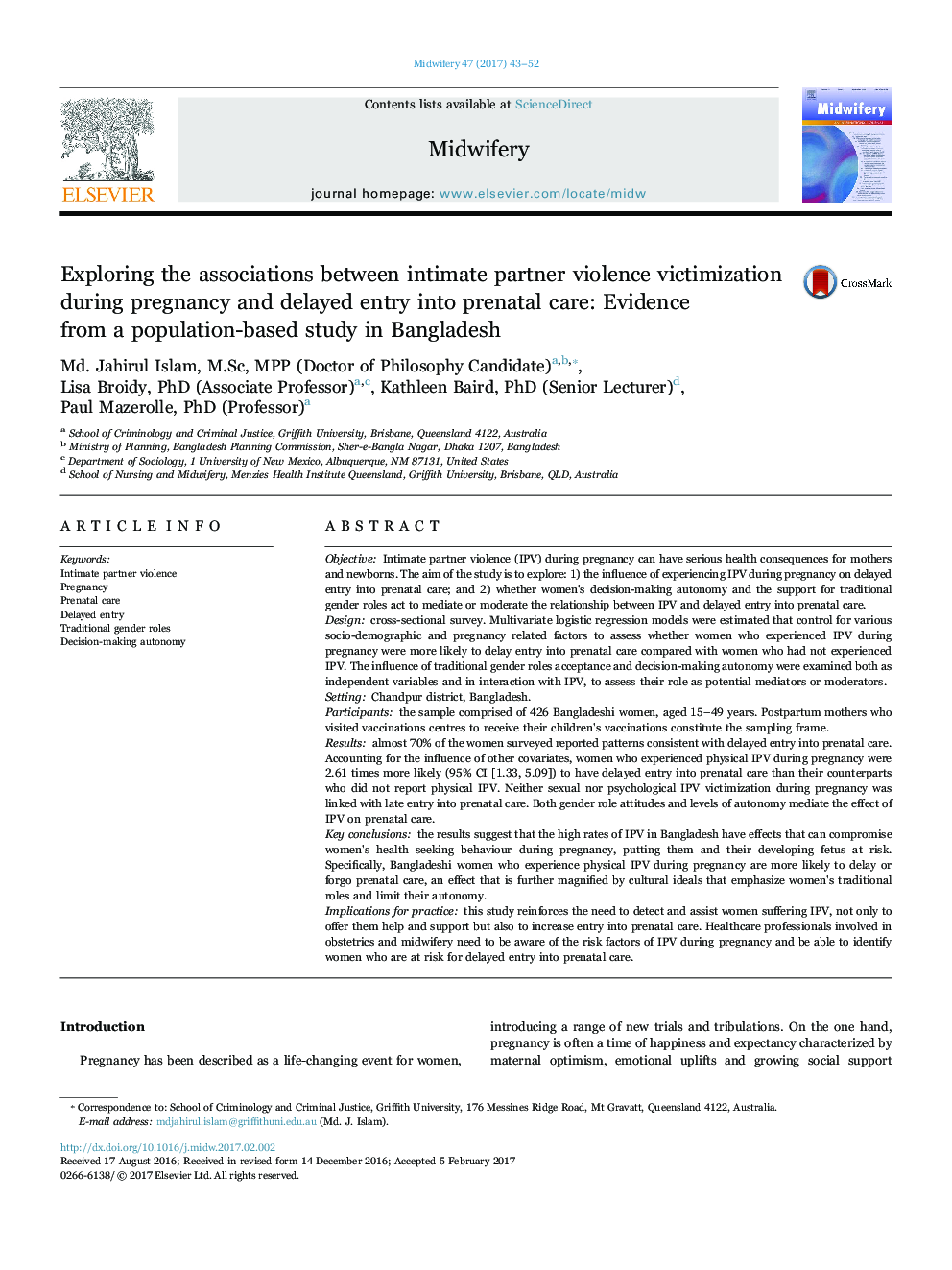| کد مقاله | کد نشریه | سال انتشار | مقاله انگلیسی | نسخه تمام متن |
|---|---|---|---|---|
| 5122334 | 1487137 | 2017 | 10 صفحه PDF | دانلود رایگان |
- Prenatal care visits contributes in reducing maternal and child mortality.
- Very few studies have investigated the impact of IPV on receipt of prenatal care.
- Women experiencing physical IPV were more likely to enter into prenatal care late.
- Gender roles and levels of autonomy moderate the effect of IPV on the prenatal care.
- Addressing these factors may increase early entry into prenatal care.
ObjectiveIntimate partner violence (IPV) during pregnancy can have serious health consequences for mothers and newborns. The aim of the study is to explore: 1) the influence of experiencing IPV during pregnancy on delayed entry into prenatal care; and 2) whether women's decision-making autonomy and the support for traditional gender roles act to mediate or moderate the relationship between IPV and delayed entry into prenatal care.Designcross-sectional survey. Multivariate logistic regression models were estimated that control for various socio-demographic and pregnancy related factors to assess whether women who experienced IPV during pregnancy were more likely to delay entry into prenatal care compared with women who had not experienced IPV. The influence of traditional gender roles acceptance and decision-making autonomy were examined both as independent variables and in interaction with IPV, to assess their role as potential mediators or moderators.SettingChandpur district, Bangladesh.Participantsthe sample comprised of 426 Bangladeshi women, aged 15-49 years. Postpartum mothers who visited vaccinations centres to receive their children's vaccinations constitute the sampling frame.Resultsalmost 70% of the women surveyed reported patterns consistent with delayed entry into prenatal care. Accounting for the influence of other covariates, women who experienced physical IPV during pregnancy were 2.61 times more likely (95% CI [1.33, 5.09]) to have delayed entry into prenatal care than their counterparts who did not report physical IPV. Neither sexual nor psychological IPV victimization during pregnancy was linked with late entry into prenatal care. Both gender role attitudes and levels of autonomy mediate the effect of IPV on prenatal care.Key conclusionsthe results suggest that the high rates of IPV in Bangladesh have effects that can compromise women's health seeking behaviour during pregnancy, putting them and their developing fetus at risk. Specifically, Bangladeshi women who experience physical IPV during pregnancy are more likely to delay or forgo prenatal care, an effect that is further magnified by cultural ideals that emphasize women's traditional roles and limit their autonomy.Implications for practicethis study reinforces the need to detect and assist women suffering IPV, not only to offer them help and support but also to increase entry into prenatal care. Healthcare professionals involved in obstetrics and midwifery need to be aware of the risk factors of IPV during pregnancy and be able to identify women who are at risk for delayed entry into prenatal care.
Journal: Midwifery - Volume 47, April 2017, Pages 43-52
